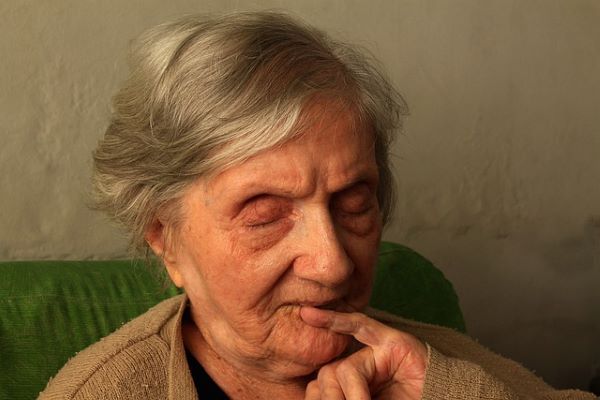Alzheimer’s disease, a progressive neurological disorder, is becoming increasingly prevalent in India due to the aging population. According to the Alzheimer’s and Related Disorders Society of India (ARDSI), over 4 million people in India are currently living with some form of dementia, with Alzheimer’s being the most common. Despite its growing impact, there is still a significant lack of awareness and understanding about Alzheimer’s disease in India. This lack of knowledge has given rise to various myths and misconceptions that hinder early diagnosis and proper care. This article will address and debunk 10 common myths about Alzheimer’s disease, providing accurate information to help improve awareness and support for those affected.
10 Common Myths About Alzheimer’s Disease
Myth 1: Alzheimer’s Disease is a Normal Part of Aging
Fact: Alzheimer’s is not a normal part of aging but a distinct neurological condition. Although age is a significant risk factor, not everyone will develop Alzheimer’s as they grow older. According to the World Health Organization (WHO), Alzheimer’s is a disease characterized by abnormal changes in the brain that progressively worsen over time. (Source)
Myth 2: Only Elderly People Get Alzheimer’s Disease
Fact: While Alzheimer’s is more common in people over the age of 65, it can also affect younger individuals in a form known as early-onset Alzheimer’s. The Mayo Clinic reports that around 5-10% of Alzheimer’s cases are early-onset, affecting people in their 40s or 50s. (Source)
Myth 3: Memory Loss is the Only Symptom of Alzheimer’s Disease
Fact: Memory loss is a hallmark of Alzheimer’s, but it is not the only symptom. The disease also affects thinking, reasoning, and even behavior. Symptoms such as confusion, disorientation, mood swings, and difficulty performing familiar tasks are common, according to the National Institute on Aging (NIA). (Source)
Myth 4: Alzheimer’s Disease is Preventable
Fact: Currently, there is no proven way to prevent Alzheimer’s disease. However, certain lifestyle factors, such as regular exercise, a healthy diet, and mental stimulation, may help reduce the risk. The Alzheimer’s Association emphasizes that while these activities may lower risk, they do not guarantee prevention. (Source)
Myth 5: Alzheimer’s is Caused by Aluminum Exposure
Fact: The belief that aluminum exposure, such as from cookware or deodorants, causes Alzheimer’s has been debunked by scientific research. The Alzheimer’s Society states that there is no conclusive evidence linking aluminum exposure to Alzheimer’s disease. (Source)
Myth 6: Alzheimer’s Disease is Entirely Genetic
Fact: While genetics play a role in Alzheimer’s disease, especially in early-onset cases, most people with Alzheimer’s do not have a strong family history of the disease. The National Institute on Aging (NIA) notes that Alzheimer’s results from a complex interaction of genetic, environmental, and lifestyle factors. (Source)
Myth 7: Alzheimer’s Can Be Cured with Certain Drugs or Supplements
Fact: There is currently no cure for Alzheimer’s disease. Some medications can help manage symptoms or slow progression in the early stages, but they cannot stop the disease. According to the Food and Drug Administration (FDA), many supplements marketed as Alzheimer’s cures lack scientific evidence and may even be harmful. (Source)
Also, read: Now Debunking 10 Common Social Phobia Disorder Myths
Myth 8: Alzheimer’s Disease is Contagious
Fact: Alzheimer’s is not contagious and cannot be transmitted from person to person. The Centers for Disease Control and Prevention (CDC) confirms that Alzheimer’s is a non-communicable disease that results from complex brain changes, not an infectious process. (Source)
Myth 9: Alzheimer’s Symptoms are Just Signs of Stress
Fact: While stress can affect memory and cognition, Alzheimer’s disease involves more severe and persistent symptoms that are not simply due to stress. The Alzheimer’s Association highlights that while stress can exacerbate symptoms, it is not the root cause of the disease. (Source)
Myth 10: Once Diagnosed with Alzheimer’s, Life is Over
Fact: A diagnosis of Alzheimer’s does not mean life is over. Many people live meaningful lives for years after their diagnosis with proper care, support, and treatment. The World Alzheimer Report stresses the importance of early diagnosis, which can allow for better planning and access to resources that improve quality of life. (Source)
Frequently Asked Questions (FAQs)
Q1: What are the early signs of Alzheimer’s disease?
A1: Early signs include memory loss, difficulty in planning or solving problems, confusion with time or place, and changes in mood or personality. These symptoms often start gradually and worsen over time.
Q2: How is Alzheimer’s disease diagnosed?
A2: Alzheimer’s is diagnosed through a combination of medical history, cognitive testing, neurological exams, and brain imaging. There is no single test for Alzheimer’s, and diagnosis is typically made by ruling out other conditions.
Q3: Can lifestyle changes reduce the risk of Alzheimer’s?
A3: While no lifestyle change can completely prevent Alzheimer’s, a healthy lifestyle that includes regular physical activity, a balanced diet, mental stimulation, and social engagement may reduce risk and promote overall brain health.
Q4: What treatments are available for Alzheimer’s?
A4: Treatment options include medications to manage symptoms, as well as non-drug approaches like cognitive therapy and lifestyle changes. While these treatments cannot cure Alzheimer’s, they can improve quality of life and slow disease progression.
Q5: How can families support a loved one with Alzheimer’s?
A5: Families can support loved ones by being patient, providing a structured environment, encouraging activities that stimulate the mind, and seeking professional help when needed. Support groups and counseling can also be beneficial.





